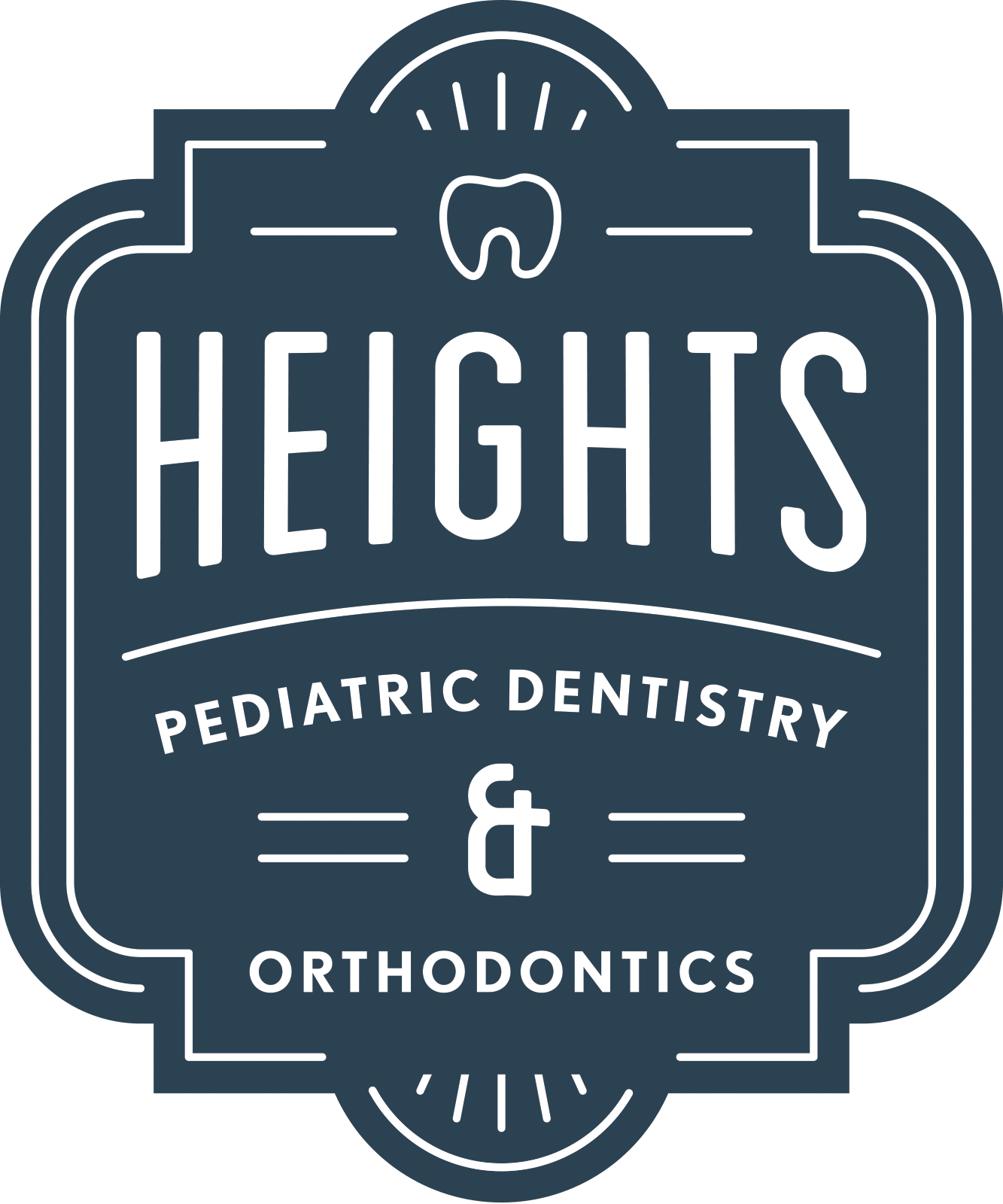"Aren't They Just Baby Teeth?"
/We hear this question quite often! We hear it from parents when discussing oral hygiene habits, diet and cavity-preventing recommendations, and when discussing cavities or infection. So why do we care so much about baby teeth at Heights Pediatric Dentistry & Orthodontics? Keep reading!
We’re aware that baby teeth will eventually be replaced by permanent teeth. We work very hard on guarding them for the necessary period of time and you will often hear our doctors discuss how to prevent dental decay and control it as opposed to just doing dental treatment. Yet, you have to remember few facts about the baby teeth and why treatment may be necessary:
*Most baby teeth complete coming in around 2-3 years old, and most of the baby teeth are not lost until the child is between 10-12 years old. That’s 10 years those teeth are needed to talk, smile, chew, and serve as a placeholder for the permanent adult teeth!
*If a tooth is lost too early before it’s time for the adult tooth to come in, then the adjacent teeth may tilt or drift into the space causing space-loss and crowding, not leaving enough room for the adult tooth to come in. This loss of space compromises proper jaw growth and development, bone formation, and can cause major orthodontic problems which often require complicated or unnecessary orthodontics. When teeth are crooked and crowded, they are also harder to clean and may lead to cavities or gum disease down the road.
*Baby teeth help with chewing and proper nutrition. It is hard for kids to consume and break down food appropriately with large spaces in the back of the mouth, and not enough teeth to chew with.
*The front baby teeth not only serve a very esthetic function, but are also important in development of speech. With missing front teeth or large spaces in the child’s bite caused by pacifier and finger sucking habits, then speech issues can occur. There are lots of tips and tools we can use to help children stop these habits so they don’t push on the teeth causing growth and proper arch development issues. Luckily the front baby teeth are the first to be replaced at about 7 years old, so we may delay treatment on these teeth or only treat or extract them in severe cases of decay or infection. Every child is unique, so the doctor will discuss all of your options with you.
*Baby teeth with large cavities will get infections! Dental infections are painful and dangerous. Any infection in the head and neck area is an emergency situation, because children can end up in the hospital on IV antibiotics to control dental infections and facial or neck swelling. The head and neck have a lot of very important structures like the brain, nerves, blood vessels and the airway that we don’t want to harm! Treatment for a dental infection is also difficult because pain can be hard to manage in an infected area. Pain often keeps kids and parents up all night and makes for a very unpleasant reminder of why we should take care of those baby teeth!
*Baby teeth have different structure than permanent teeth and their thin enamel can easily be attacked and penetrated by bacteria therefore they need more diligent preventative dental care. "Fixing" baby teeth is not a small affair! Although the restorations are fairly simple to do comparing to permanent teeth, the teeth are smaller, more prone to recurrence of decay, and kids are young and often not cooperative for restorative appointments.
So in conclusion, we would like to remind you to take great care of ALL those pearly whites. Please remember that as much as dental decay is multifactorial, we can control oral hygiene and diet such as NOT going to bed with milk, AVOIDING sweet drinks (i.e. juices, sodas and sports drinks like Gatorade), and AVOIDING sticky snacks or gummies (i.e. candy, caramel, taffy, bubble gum, gummies, dried fruit, fruit roll-ups, gold fish, crackers, and cookies). Let’s give those baby teeth a chance to live out all 12 years of their life in good health and prosperity!






